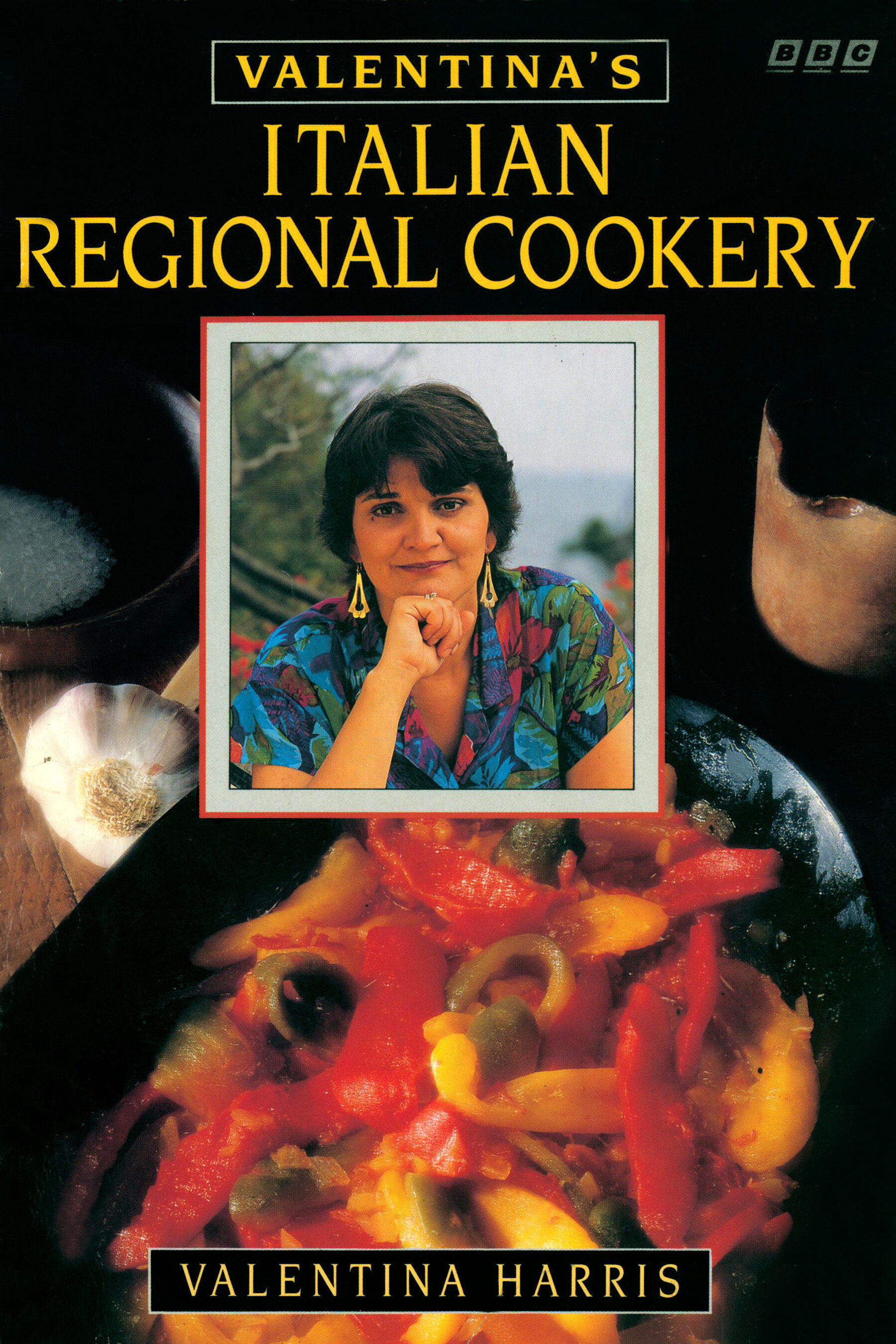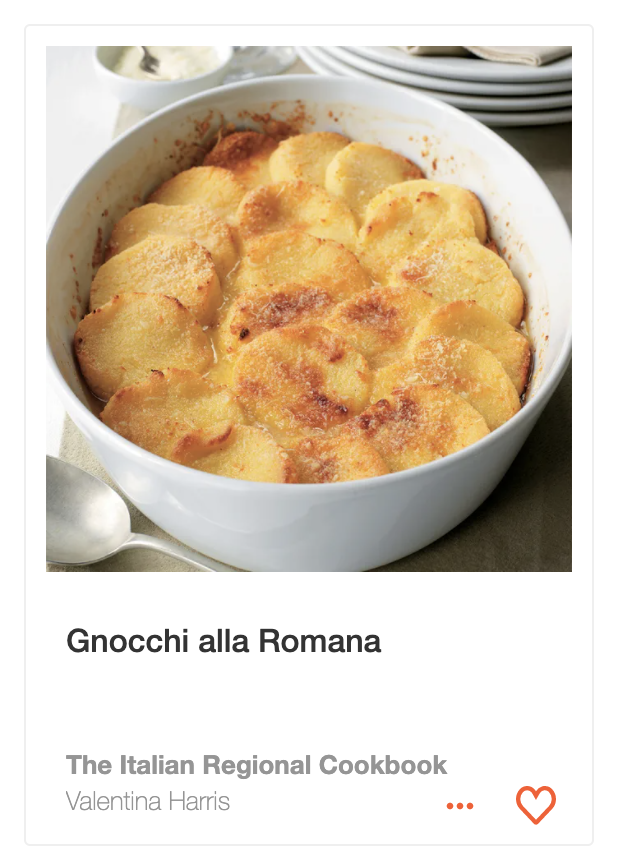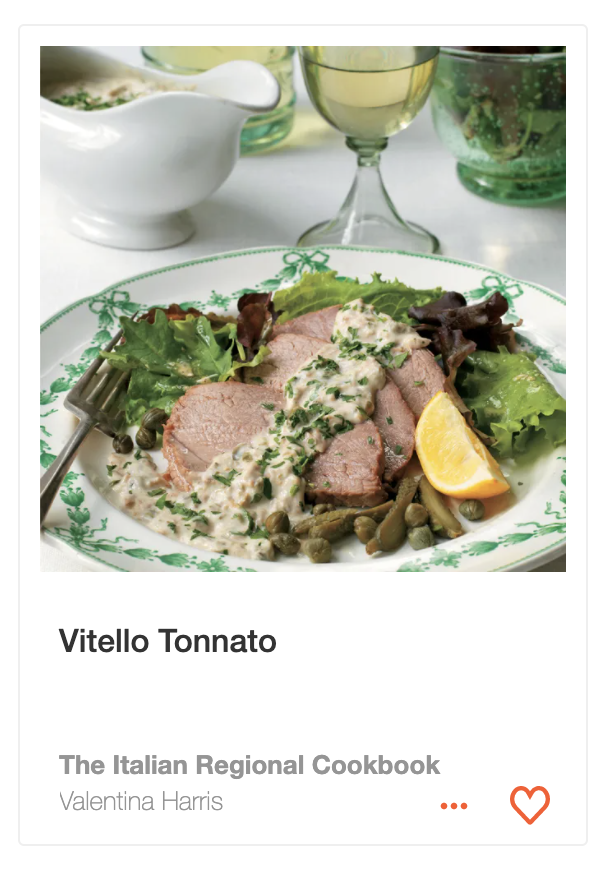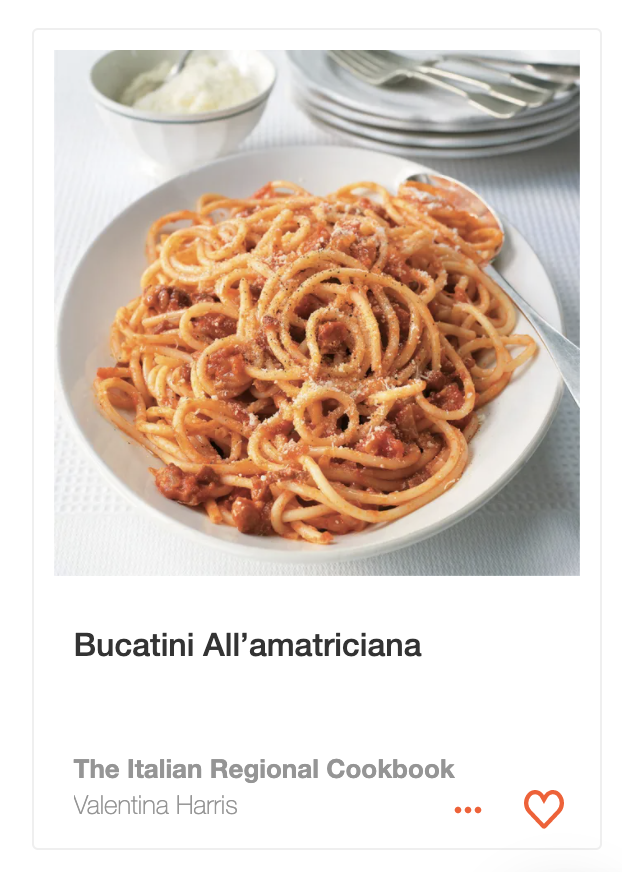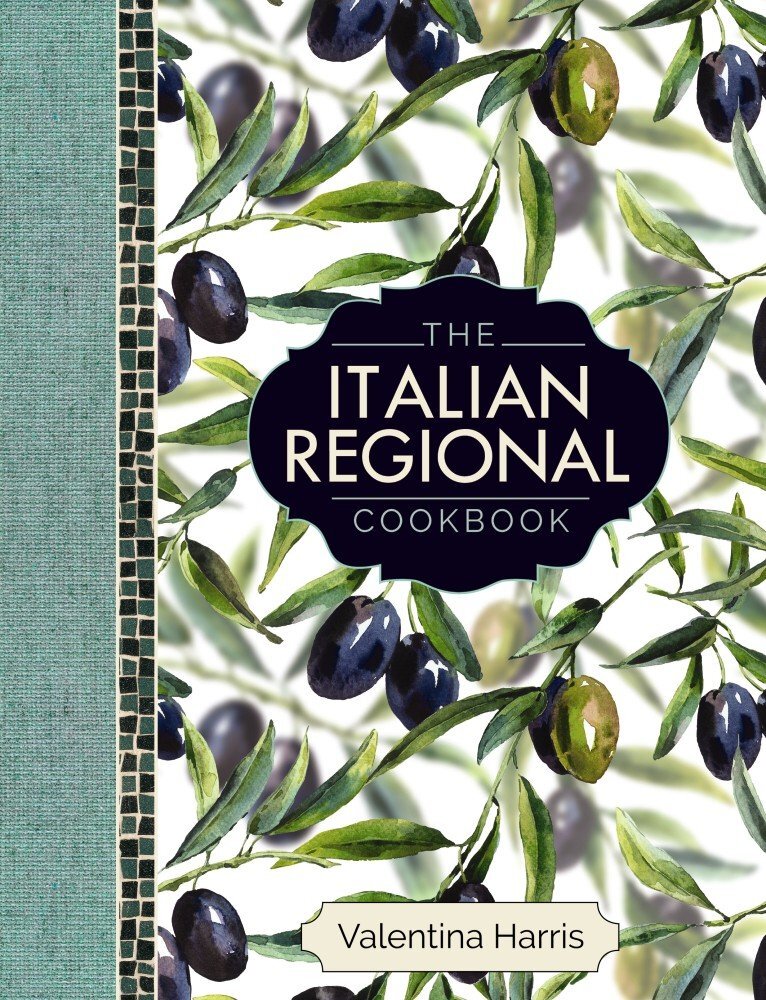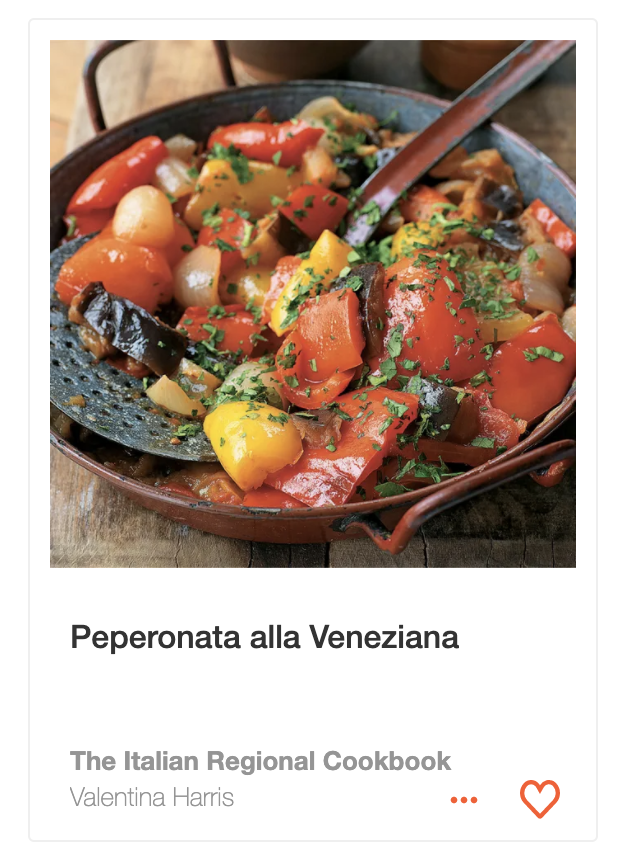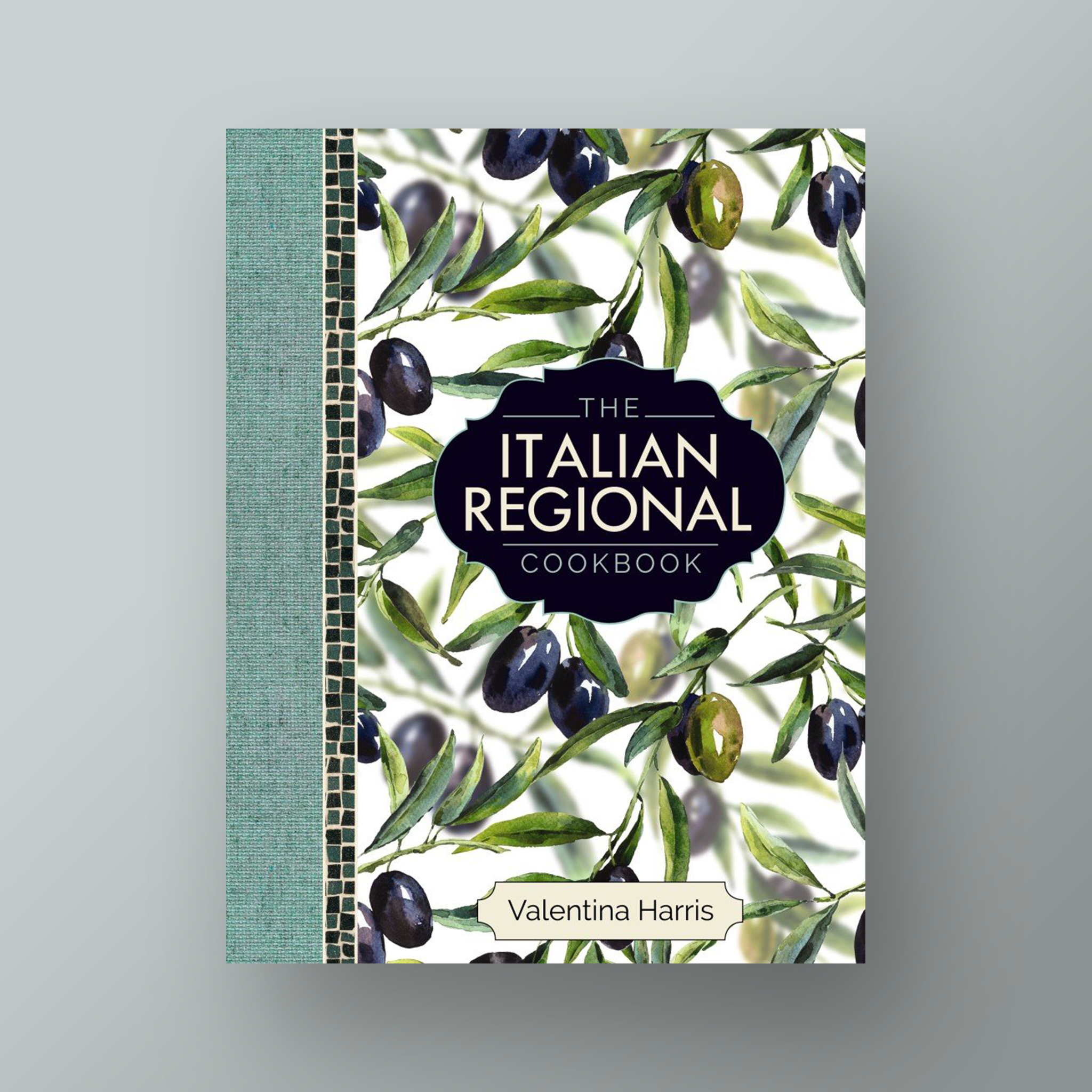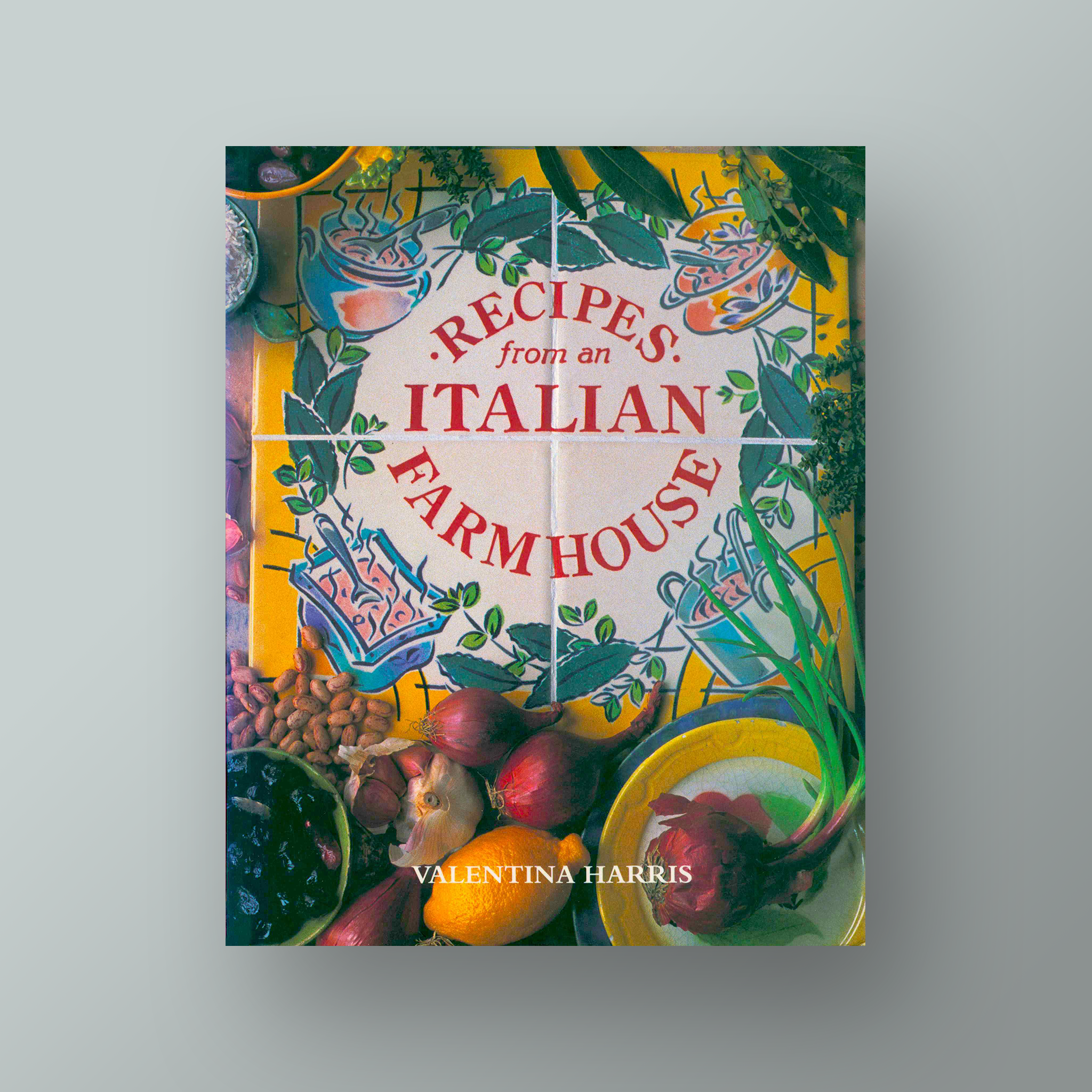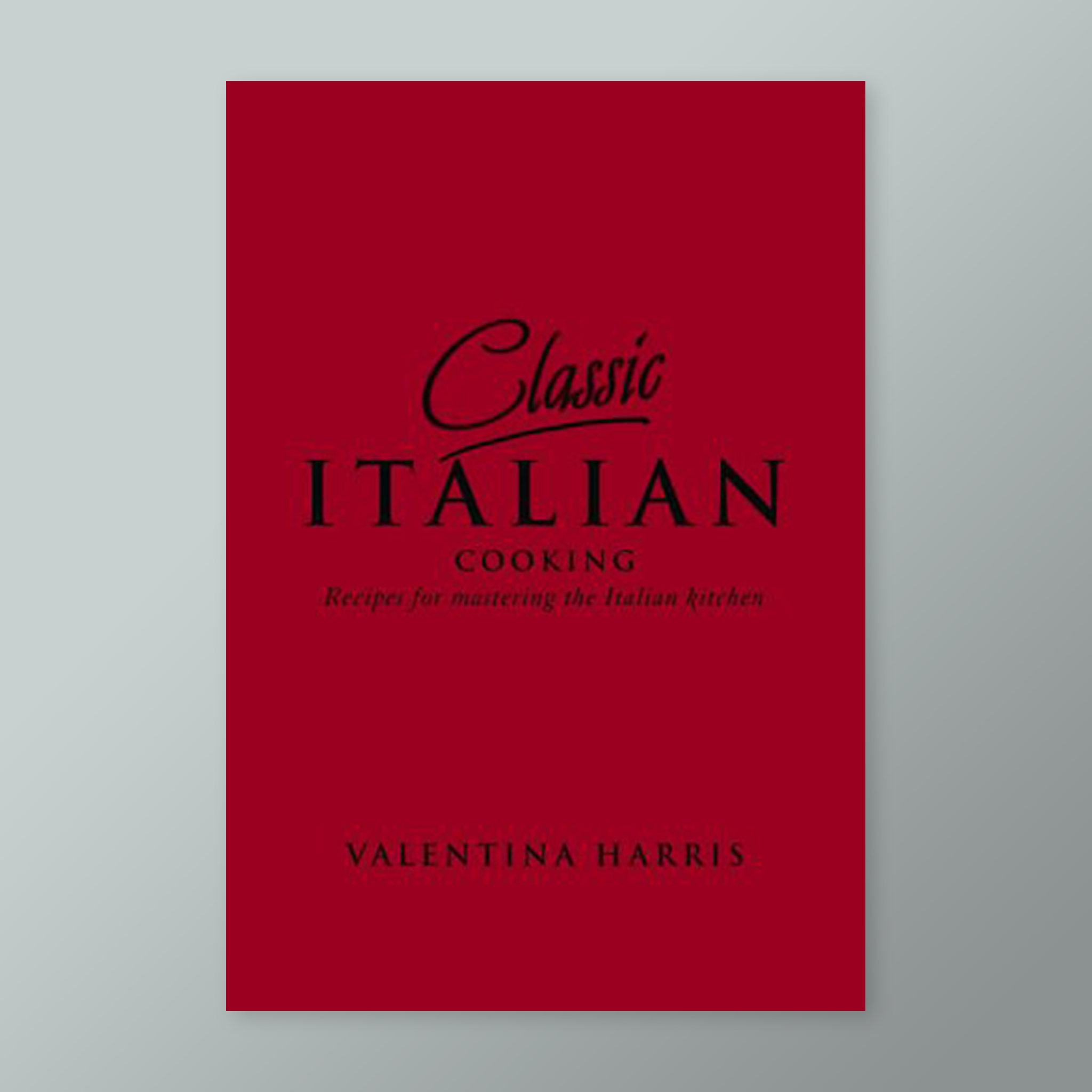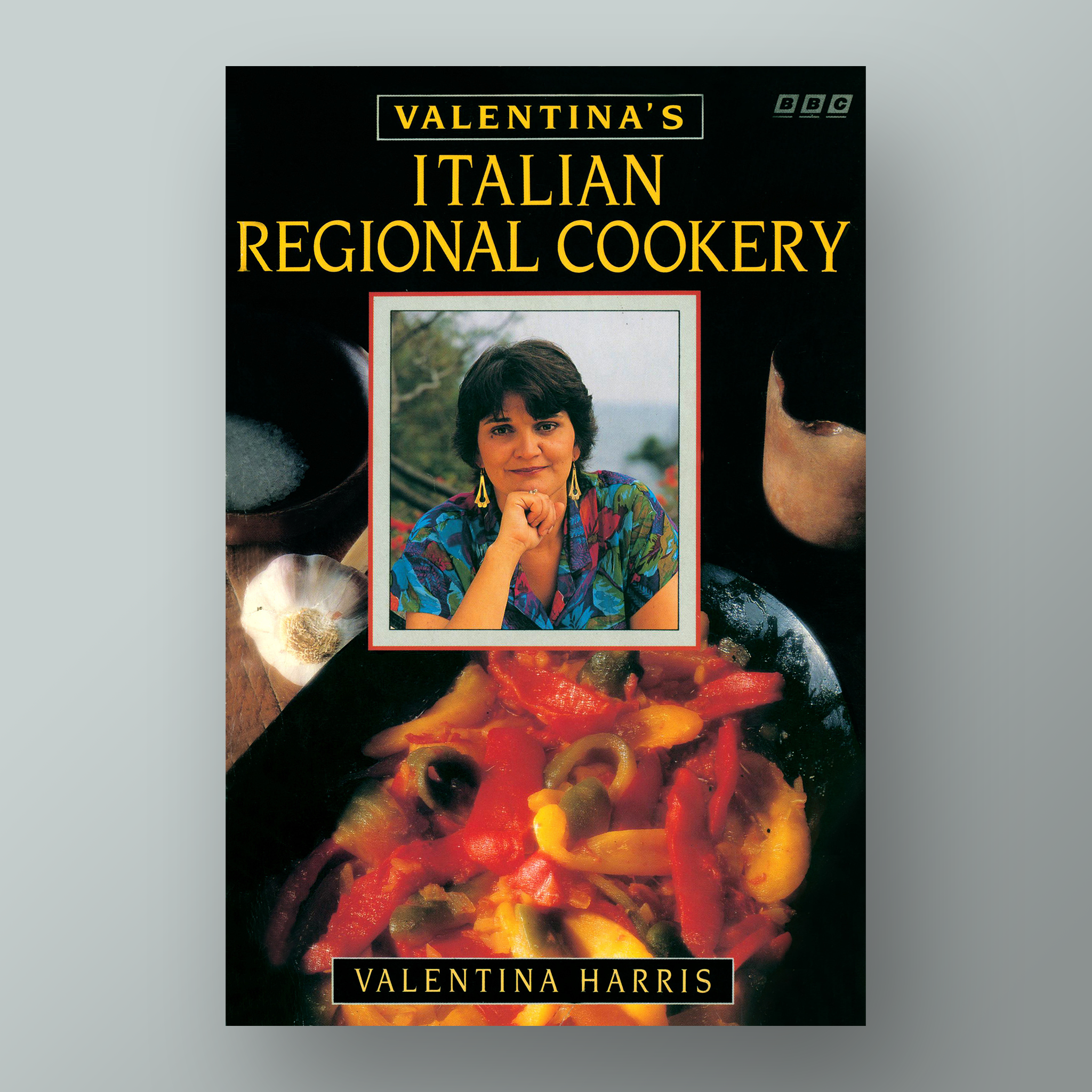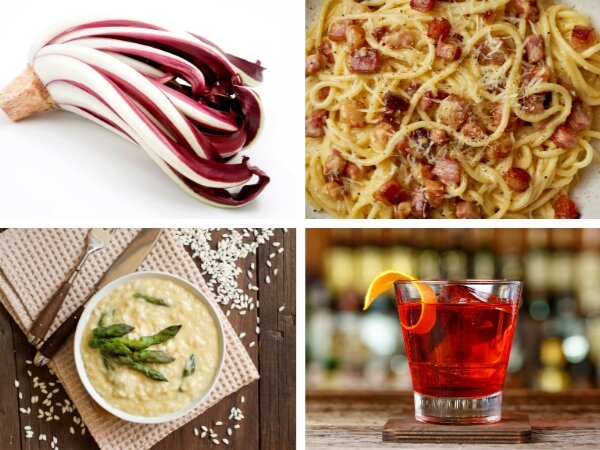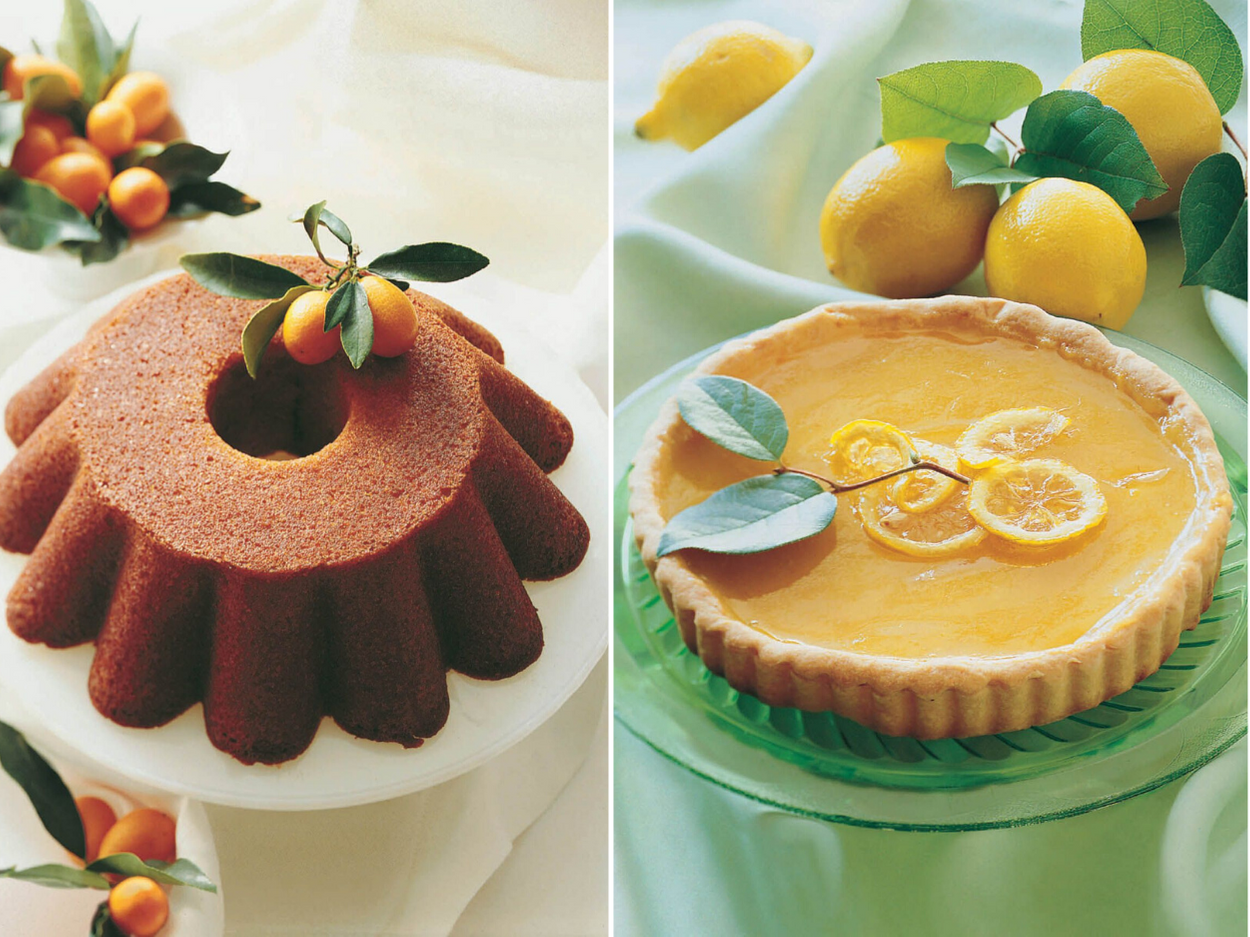Advertisement
Behind the Cookbook: The Italian Regional Cookbook
23 June 2020 · Behind the Cookbook
Thirty or so years ago, I wrote my first book about regional Italian cuisine. Valentina’s Italian Regional Cookery accompanied a BBC series of the same name, and it just roared up the bestseller charts.
The long-held concept of ‘Italian food’ was revealed to be a misnomer by that book and series. Italy’s cuisine is a hugely varied palette of flavours and techniques, made up of culinary traditions and customs preciously guarded by each region. While most people now understand the differences between the cuisine of one region and another, back then this really was a new point of view – and it was mine. It was a simple case of right place, right time!
My motivating passion regarding the understanding of these profound and irrefutable differences dates back to the mid-1980s. In an early development meeting in a fusty BBC boardroom, I was interrogated about what a series on Italian regional food should look and feel like by several grumpy men.
At the time, I was a very young mother living in rural bliss in Norfolk with my then-husband, the broadcaster Bob Harris, taking frequent trips home to Italy, and with five published books and two awards under my belt – but I was desperately out of my depth in that boardroom. And then someone sitting at the far end of that long table spoke out saying: “I don’t think there is any reason to make a series on Italian food; after all it’s so visually unappealing – dull really, as everything is red, just covered in tomato sauce.”
This felt so wrong and was so blatantly untrue that it became my tipping point. I went home and wrote a comprehensive treatment about how Italy’s regional food reflects so much about the history of Italy before the country was unified, and long before the introduction of the now-ubiquitous tomato from the New World in the 16th century. Somehow, I got the contract.
The stories and traditions behind Italy’s celebration of food have always kept me spellbound, and it was a huge privilege to explore these traditions in depth, travelling the length and breadth, and to every corner of the country, researching, filming and writing. Three years passed from the day the project became a reality to the day we began filming. During this time I was embargoed from doing other work while I wrote the book and had a second baby – my son Jamie is now a father himself. The book and the series were groundbreaking, exploring Italy’s culinary stories and traditions for an English-speaking audience.
Authentic, traditional dishes of Italy are wonderful to eat, but they’re also fascinating. You can learn so much about Italy’s regional geography, history, sociology, legends and habits by simply studying what’s on your plate.
I went on to write more on this subject, always seeking out the stories and snippets that enrich Italy’s authentic recipes, becoming a self-styled ambassadress for Italy’s culinary riches. Then about 15 years ago, I realised that I probably wasn’t going to be around long enough to cover everything that Italy has to tell us about her cuisine, and I was able to relax what had become a somewhat feverish research regime. Amazingly, the information has just gone on flowing – I continue to discover more about Italy’s rich culinary palette without really trying. As a food writer and chef it remains my prime interest.
In 2008 Joanna Lorenz of Anness Publishing offered me the chance to revisit the food and cooking of all 20 regions of Italy with what was initially a series of five books, each covering a specific area of the country. With the original BBC book out of print, and the TV series lost in some dusty archive, the time was exactly right to take on the project.
The book covers the regions, their rich history, diverse geography, their products and ancient recipes, and the local food festivals – the sagre – that celebrate these specialties and their place of origin, as only Italians really can.
I began with the place that most familiar to me: Tuscany, where I grew up. For the purposes of the series it was grouped with Umbria and the Marche. I was thrilled to be able to revisit and revamp all that I knew and to add lots of new discoveries as I worked my way around the country, book by book, region by region. I wanted this work to be significantly different from what I had written before, so I opted for a writing style that leans towards informative rather than lyrical.
But Italians tend to be so emotional about their food, proudly respectful of their traditional regional dishes and products – as much a part of their heritage and patrimony as the Sistine Chapel or Piazza San Marco – so it was almost impossible not to allow some of that emotion to seep through into the pages.
It took just over three years to write the original five books, with all the food styling and photography for each book carried out in between the writing as I worked my way around the country. The photography of any illustrated cookbook is important, and this book also has step-by-step photographs to accompany the picture of the finished dish.
I’ve always preferred to do my own cooking and food styling for my recipes. My dear old friend, the legendary late Martin Brigdale, was to be the photographer. My good friend Mandy agreed to be my assistant, and her lovely hands are featured throughout the books as a permanent reminder of our collaboration (Martin considered mine to be too chunky to be appealing).
Mandy was not always available, so leafing through the pictures now, I like to identify the other disembodied hands that occasionally appear, and remember other friends and colleagues who joined the project in the dual role of hand model/plongeur!
It was a long labour of love, with the photography happening in Martin’s home studio where, very sadly his partner, the famous stylist Helen Trent, was being treated for the devastating cancer that eventually led to her tragic death somewhere around book four. To my eternal admiration, despite all predictions, Martin recovered from his heartbreak enough to complete the series. The last book is a beautiful thing that Helen would have been so proud of, but it still makes me a little sad.
All five books were later reconfigured into a series of small paperbacks inside a slip-case. Then the day came to gather all five books together into one big glorious book called The Italian Regional Cookbook. This involved a bit of a remix, with some recipes being replaced by others, some new stories and, of course, some new photography.
The lovely, hugely talented food photographer Ian Garlick took over the new photography, generously following the style and feel of the pictures that Martin had already shot, giving the book a sense of continuity. In 2017, almost ten years after it all began, it was mind-blowing to hold this lovely big book in my hands. Every time I look at it, I remember all the people who made it possible – not forgetting the unsung heroes who created the recipes that I’ve gone on to develop with painstaking respect for their traditional ingredients and methods.
So, for me, this book has a huge back-story. One that is not only all about my favourite subject, but also about friends and colleagues I’ve lost and who are so sorely missed – as well as those who lent me their hands and worked alongside me as we kept the show on the road.
All of my books are beloved babies, but one or two are really significant and more than just a cookbook. These are a part of my life and are wrapped up with experiences that have shaped me as a person as well as a writer and chef. The Italian Regional Cookbook is one of these.
Over time, I’d like to think that experience and practice have helped me to improve both as a chef and as a writer, and I’d like to think that in time there could be another edition of this great opus. I’d like to update and refresh it for the 21st century and beyond, expanded with new stories and photography that will keep it going forever – but in the meantime I hope you will enjoy discovering the recipes, facts and stories contained in these pages and that it will go some way to help you explore the diversity and wonder of Italy’s regional cuisine.
Valentina’s Unmissable Recipes
Out of the many, many, much loved recipes, I think some of the most unmissable are:
Ragù Classico alla Bolognese, the absolutely authentic version of this timeless sauce that’s a million miles away from any Spaghetti Bolognese recipe, and is designed to be served on tagliatelle, or in a lasagna following the strict Emilia Romagna dictum.
The delicious Tortiera di Carciofi from Calabria, which elevates the artichoke to a whole new level, and the fabulous Agnello al Tartufo Nero from Umbria, a luxurious must for all lovers of roast lamb.
As a wonderful antipasto – one of my favourites – try the Peperoni in Teglia alla Napoletana, or the Bocconcini di Sogliola, lined with Speck, from Friuli Venezia Giulia in the northeast.
If something sweet is what you’re looking for, don’t miss my authentic recipe for Zuccotto, the creamy, chocolatey, boozy Tuscan Cream and Chocolate Pudding, with its roots firmly embedded in the Medici Renaissance kitchens.
Or, staying in Tuscany, what about making your own Panforte, the hard, chewy, nutty sweetmeat that has been made in this exact way in Siena for centuries.
So many recipes, so many memories, so many stories and information to bring the dishes to life – there is truly something for everybody who loves Italian food here.
Valentina Harris is an authority on Italian food and culture. The award-winning author has written over 45 books on Italian food including Classic Italian Cooking, Recipes of an Italian Farmhouse, Italian Regional Cookery, and her recent masterwork The Italian Regional Cookbook—all available on ckbk.
Books by Valentina Harris on ckbk
Related Posts

Memories of Mom
Authors Valentina Harris and Marcy Goldman reflect on cooking with their mothers.
Sign up for ckbk's weekly email newsletter
Advertisement


